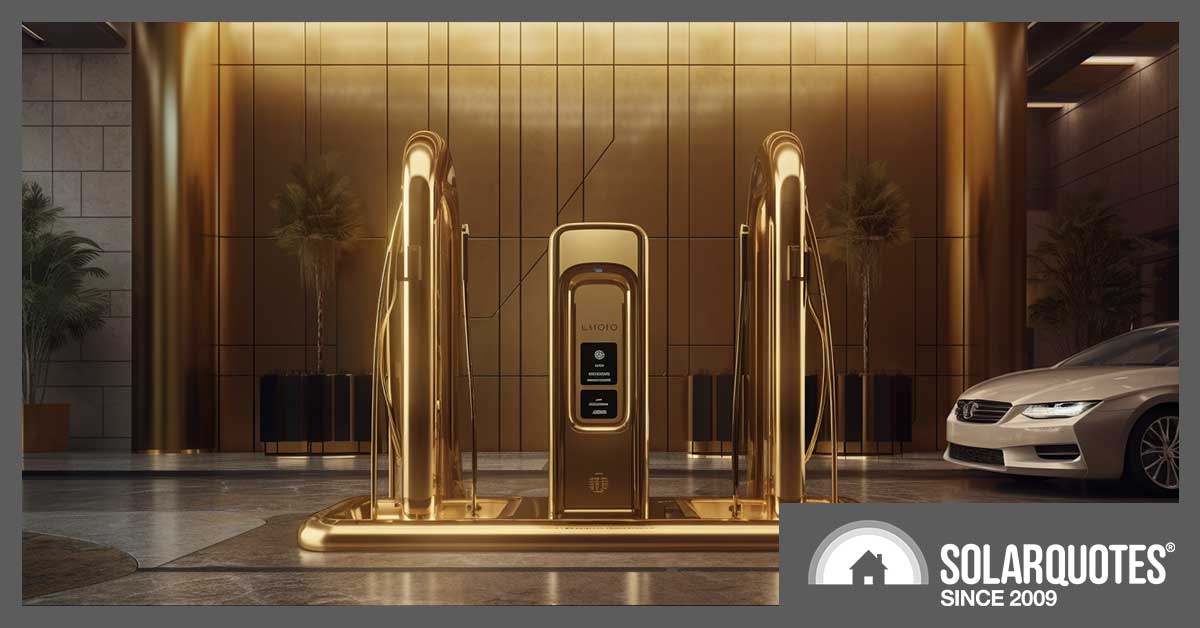
Ausgrid wants to gold-plate the fast charger tariffs on its network…
The EV Council has warned the Australia Energy Regulator (AER) that Ausgrid’s current regulatory proposal offers a tariff structure that would push up the price of public chargers.
The AER published an issues paper covering the 2024-2029 regulatory proposal in late March.
The regulator had recently also published papers covering Essential Energy and Endeavour Energy.
The EV Council’s submission (PDF here) said:
“While all Tariff Structure Statements (TSS) have been noted as meeting AER expectations, the Ausgrid TSS differs materially from Essential and Endeavour with respect to the impact of the Tariff Structure and tariff assignment policies on high power public EV charging sites,”
The problem the council identified relates to the capacity tariff threshold, which Ausgrid sets lower than Endeavour’s or Essential’s 160MWh/annum.
The AER’s document said:
“For electric vehicle charging stations, [Ausgrid] proposed to move its capacity tariff threshold from 40 MWh to 100 MWh, over a three-year period.
Customers consuming between 40 MWh and 100 MWh, including applicable charging stations, would be assigned to default demand tariffs rather than capacity tariffs, and would be able to opt out to TOU [time of use] tariffs”.
The EV Council said in its submission:
“at the 100MWh/annum tipping point … the network cost component of a 500kVA charging location in the Ausgrid region will be approximately $70k/annum … while in the Endeavour region the network cost for the same type of site at 100MWh would be approximately $9k/annum, and in the Essential region the network cost would be approximately $14k/annum.”
This, the council argued, would make EV charging 50c per kWh more expensive than on the Essential or Endeavour networks.
The EV Council said that would make electricity more expensive than petrol, unless the charger owners spread the costs over their whole network, making electricity more expensive for all.

 RSS - Posts
RSS - Posts



Why don’t EV charging facilities offer wholesale linked charging costs? Maybe even put up big signs telling people what the current price is – I’ve heard that is relatively common for old style fossil fuel stations..
You’d have to have some kind of cap so that you don’t get the scenario of filling up for $900 (eg. $15k MWh), but having a pricing signal would likely help with the demand response that is required by the grid.
Essential is owned by Origin, Endeavour by a consortium led by Macquarie Infrastructure, and Ausgrid by AustralianSuper and IFM Investors.
Does the difference in pricing reflect a difference in perceived business costs. or a difference in desired profit margins?
How will EV charging station power demands differ to regular commercial demand? Will they function more akin to heavy industry demand? Will they require unique treatment by grid providers?
With EVs still being relatively scarce does this data yet exist? Petrol stations show the intensity of demand that can exist at different times of the day, but this pattern likely isn’t yet visible for EVs, or at least not outside a handful of areas. And with home recharging being possible, the patterns could differ slightly when they are established.
Essential Energy is owned by the NSW Government.
https://www.service.nsw.gov.au/nswgovdirectory/essential-energy
Electric cars will follow the same upward trend as gas did after it caught on, then cheap diesel followed the upward trend in price as it became popular, the writting is on the wall. Whatever you buy will eventually have the same level of running costs.
Another EV scare story
No. It reports a crippling tariff that a DNSP has proposed that will harm EV uptake. Hopefully, this post will- in a small way – help kill the proposed tariff.
The problem is oversight. If the media does not keep an eye on these sort of things then in the few percent of times it becomes an important issue, it is already too late to do anything about it. Your reply of “EV Scare story” provided no evidence of such, nor evidence that it is factually incorrect, and implies the main justification was to get people riled up for no good reason. It is made quite clear in the story that all this is still at the proposal stage – a good thing because we can track down the facts ourselves and engage further if we think it is important enough.